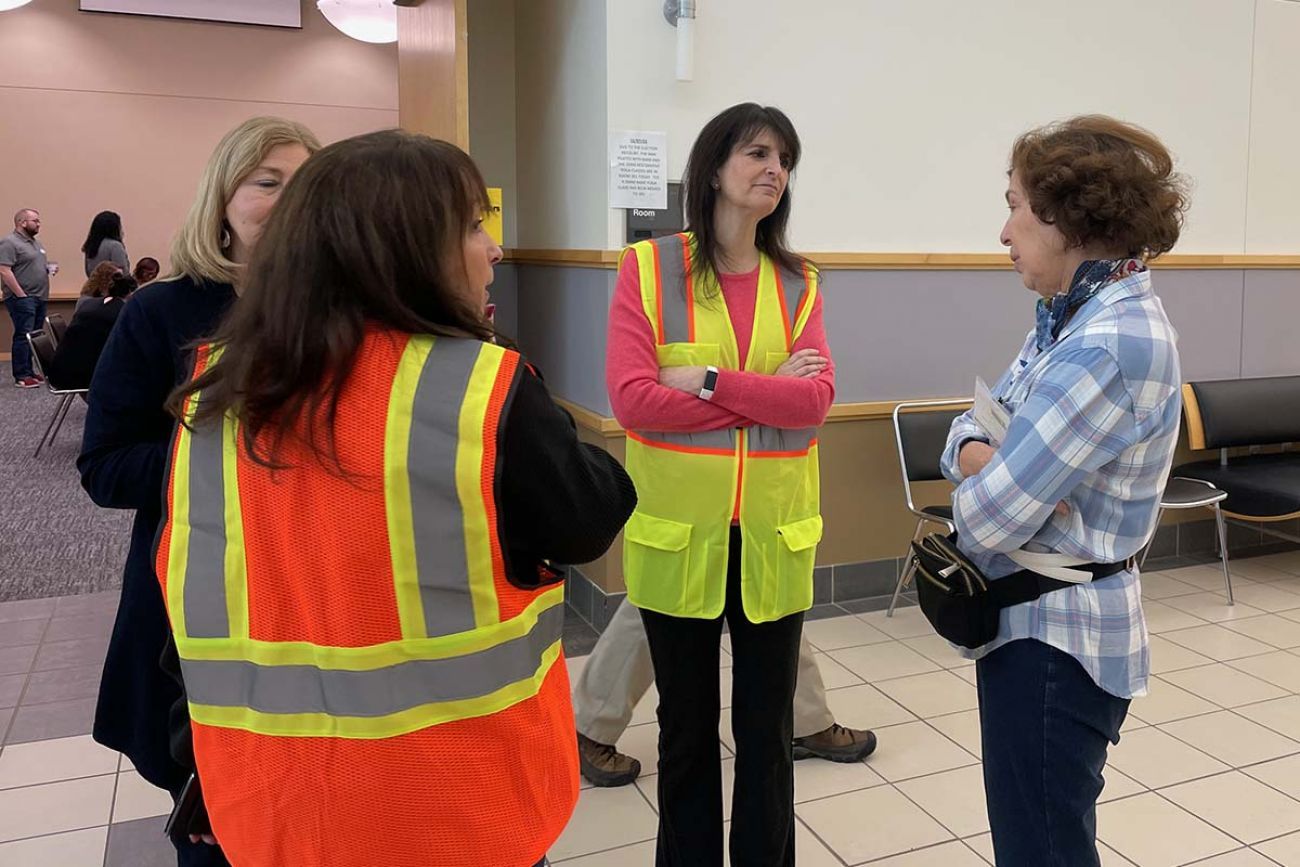Michigan recount: Big expense, very few changed votes, results show

- The partial recount resulted in a net gain of 109 ‘yes’ votes for abortion rights and a net gain of six ‘no’ votes against changes to voting rules
- Michigan’s Board of State Canvassers will meet Wednesday to review the results
- A flurry of challenges about the recounts are pending, although many of the claims have been debunked in court
A hand recount of two ballot proposals that passed by overwhelming margins in November cost hundreds of thousands of dollars and resulted in very few changed votes, according to preliminary figures released Tuesday.
Funded by a conservative group that sought to de-certify the 2020 presidential election, the partial recounts produced a net gain of 109 votes for Proposal 3, which enshrined abortion rights into the state constitution, and six net votes against Proposal 2, which changed voting rules.
In all, more than 4 million voters cast ballots on the measures. The hand recount involved about 500 precincts spread across 43 counties and 117 Michigan municipalities, including Detroit, Grand Rapids, Lansing and Ann Arbor. There are about 4,751 voting precincts in the state.
Related:
- Experts: Michigan recounts that won’t change outcome show law must change
- Michigan Democrats eye other abortion law changes as Prop 3 set to take effect
- Michigan to recount Proposals 2, 3. ‘Fishing expedition’ won’t change outcomes
A report from the Michigan Bureau of Elections found:
- The recount of Proposal 2, which guaranteed up to nine days of early, in-person voting, turned up 14 additional “yes” votes and 20 additional “no” votes in Kalamazoo, Macomb, Muskegon and Oakland counties.
- The Proposal 3 recount found 116 additional “yes” votes and seven additional “no” votes for a net gain of 109 votes across precincts in 43 counties.
Michigan’s Board of State Canvassers will meet Wednesday to review the results of the partial recount and a flurry of challenges submitted during the recount process.
The partial recount had no mathematical chance of overturning either result: Proposal 3 passed with 57 percent of the overall statewide vote, and Proposal 2 passed 60 to 40 percent.
In requesting the recount, a Michigan activist group known as the Election Integrity Force claimed the Nov. 8 statewide election was conducted using voting machines that were not properly certified and were connected to the internet, allegations state and local officials have repeatedly called misinformation.
The group’s goal was not to overturn the 2022 ballot measures, but to "provide more transparency to what happens in our elections," Sandy Kiesel, executive director of the Election Integrity Force, previously told Bridge Michigan.
Jerome Allen, a member of the nonprofit group, paid the state $428,000 to cover estimated fees required for the recount under Michigan law.
Some of that money will be refunded because the initial estimate was based on the assumption it would cost $250 per precinct, but the cost is actually $125 per precinct, according to the Secretary of State’s office.
Critics say the $125-per-precinct fee recount organizers are required to pay won’t cover the full costs incurred by local election officials. In Ingham County, for instance, Clerk Barb Byrum said the recount cost taxpayers $8,200.
Backers of the recount effort reported the bill was covered by The America Project, a national nonprofit founded by Utah businessman Patrick Byrne — founder of Overstock.com — and former Trump National Security Advisor Michael Flynn.
Tony Daunt, a Republican member of the Board of State Canvassers, previously decried the recount request as an “unnecessary, frivolous and ridiculous” fishing expedition, although he and other canvassers voted to let the recount proceed after determining organizers met the legal requirements of a recount request.
The Election Integrity Force in October joined then-Michigan Secretary of State candidate Kristina Karamo in a failed lawsuit that sought to invalidate absentee ballot votes in Detroit.
Wayne County Judge Timothy Kenny rejected the suit, saying Karamo, the Election Integrity Force and other plaintiffs had "raised a false flag of election law violations and corruption."
Karamo and former Republican gubernatorial candidate Ryan Kelley — who is accused of misdemeanor crimes for his actions in the January 6, 2021, uprising at the U.S. Capitol — both promoted the recount in emails urging their supporters to apply to work the recount for local clerks.
A total of 119 challenges were filed during the recount process, listing reasons such as “voting systems not certified,” “stray marks,” “ballot is crumpled” or suggesting any absentee ballot not requested in person should be rejected.
The assertion that mail-in absentee ballots were invalid was rejected outright by Kenny in his dismissal of Karamo’s lawsuit. Similar claims to many listed in the challenges have been dismissed in court and by election officials.
See what new members are saying about why they donated to Bridge Michigan:
- “In order for this information to be accurate and unbiased it must be underwritten by its readers, not by special interests.” - Larry S.
- “Not many other media sources report on the topics Bridge does.” - Susan B.
- “Your journalism is outstanding and rare these days.” - Mark S.
If you want to ensure the future of nonpartisan, nonprofit Michigan journalism, please become a member today. You, too, will be asked why you donated and maybe we'll feature your quote next time!




